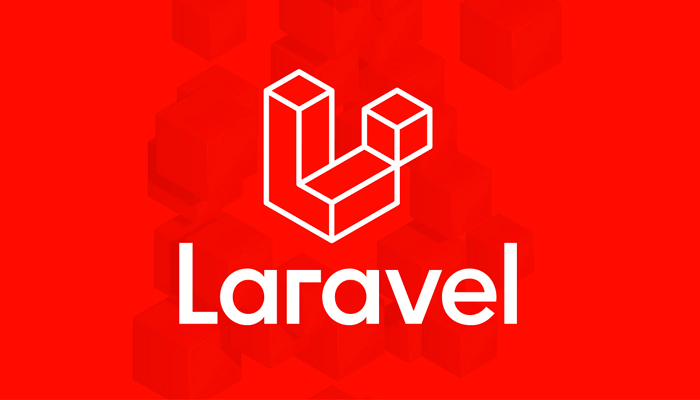
Is Laravel Good for Big Projects? When it comes to developing large-scale projects, choosing the right framework is crucial for ensuring efficiency, scalability, and maintainability. Laravel, a popular PHP framework, has gained significant attention in the development community. But in Laravel good for big projects? In this article, we will delve into the capabilities of Laravel and explore its suitability for handling large-scale projects. So, let’s dive in and uncover the strengths and considerations of using Laravel for big projects.
Understanding Laravel’s Capabilities
Laravel is a powerful PHP framework that follows the Model-View-Controller (MVC) architectural pattern. It provides a comprehensive set of features and tools to streamline the development process and boost productivity. Before we determine whether Laravel is suitable for big projects, let’s examine its key strengths:
1. Robust and Scalable Architecture
Laravel offers a solid foundation for building complex applications. Its modular architecture allows developers to organize their code effectively, making it easier to maintain and scale as the project grows. The MVC structure separates business logic, data handling, and presentation layers, enhancing code reusability and flexibility.
2. Rich Ecosystem and Community Support
One of Laravel’s greatest advantages is its extensive ecosystem. It provides numerous ready-to-use packages, known as “Laravel Packages,” which offer pre-built functionalities for common tasks. This saves developers time and effort, as they can leverage existing solutions rather than building everything from scratch. Additionally, Laravel boasts an active and supportive community, where developers can seek help, share knowledge, and contribute to the framework’s growth.
3. Expressive Syntax and Developer-Friendly
Laravel aims to improve the developer experience by offering an elegant and expressive syntax. With its intuitive API and clear documentation, developers can quickly grasp Laravel’s concepts and get up to speed with the framework. Moreover, Laravel encourages best practices such as test-driven development (TDD) and follows the “Convention over Configuration” principle, reducing the need for manual configuration and minimizing boilerplate code.
Factors to Consider for Big Projects
While Laravel possesses several strengths, it’s essential to consider specific factors before deciding to use it for big projects. Let’s explore these factors in detail:
1. Performance Considerations
When dealing with large-scale projects, performance becomes a critical aspect. While Laravel offers excellent performance out of the box, certain factors can influence its efficiency. Proper optimization techniques, such as caching, database indexing, and code profiling, should be employed to ensure optimal performance. Additionally, Laravel’s ORM, Eloquent, may face performance challenges when handling complex queries, necessitating careful query optimization.
2. Project Complexity and Learning Curve
Large projects tend to have more complex requirements, involving intricate business logic and extensive data manipulation. While Laravel simplifies many aspects of development, it does have a learning curve, especially for developers who are new to the framework. If your team lacks experience with Laravel, it may take some time to get accustomed to its conventions and best practices. However, with the proper training and support, the learning curve can be minimized.
3. Scalability and Maintenance
Big projects often require frequent updates, new features, and ongoing maintenance. Laravel’s modular architecture and separation of concerns facilitate scalability and maintenance. However, it is crucial to establish a proper project structure, adhere to coding standards, and follow the SOLID principles to ensure the project remains maintainable over time. Proper documentation and a disciplined approach to code organization are vital for long-term scalability and easier onboarding of new team members.
FAQs about Using Laravel for Big Projects
Now, let’s address some frequently asked questions regarding Laravel’s suitability for big projects:
FAQ 1: Is Laravel suitable for enterprise-level applications?
Yes, Laravel is well-suited for enterprise-level applications due to its scalability, robustness, and extensive ecosystem. With its modular architecture and support for large-scale projects, Laravel has been successfully used in numerous enterprise-level applications.
FAQ 2: Can Laravel handle high traffic and heavy loads?
Yes, Laravel can handle high traffic and heavy loads efficiently when properly optimized. By employing techniques such as caching, database query optimization, and server scaling, Laravel can handle a significant volume of traffic and maintain a responsive application.
FAQ 3: Are there any real-world examples of Laravel being used for big projects?
Absolutely! Laravel has been utilized in various big projects across different industries. One prominent example is the website of Laravel’s creator, Taylor Otwell, known as Laravel News. This website serves as a testament to Laravel’s capabilities in handling large-scale applications.
FAQ 4: Does Laravel support microservices architecture?
Yes, Laravel can be used in a microservices architecture. Its modular structure and support for RESTful APIs make it suitable for building and integrating microservices. By leveraging Laravel’s built-in API resources and authentication features, developers can create a robust microservices architecture.
FAQ 5: Is Laravel suitable for e-commerce platforms?
Yes, Laravel is a popular choice for building e-commerce platforms. Its extensive ecosystem provides packages and integrations for handling e-commerce functionalities such as payment gateways, product catalogs, shopping carts, and more. Laravel’s flexibility allows developers to customize and tailor the platform to suit specific business requirements.
FAQ 6: Can Laravel handle complex database relationships?
Absolutely! Laravel’s ORM, Eloquent, offers powerful tools for managing complex database relationships. With its expressive syntax and convenient query builder methods, Eloquent simplifies working with complex data models and their associations, making it well-suited for big projects with intricate database structures.
Conclusion
In conclusion, Laravel is indeed a viable option for big projects. Its robust architecture, extensive ecosystem, and developer-friendly features make it suitable for handling large-scale applications. However, it is essential to consider factors such as performance optimization, project complexity, and long-term maintenance to ensure a successful implementation. With the right approach and proper planning, Laravel can empower developers to create efficient and scalable solutions for big projects.